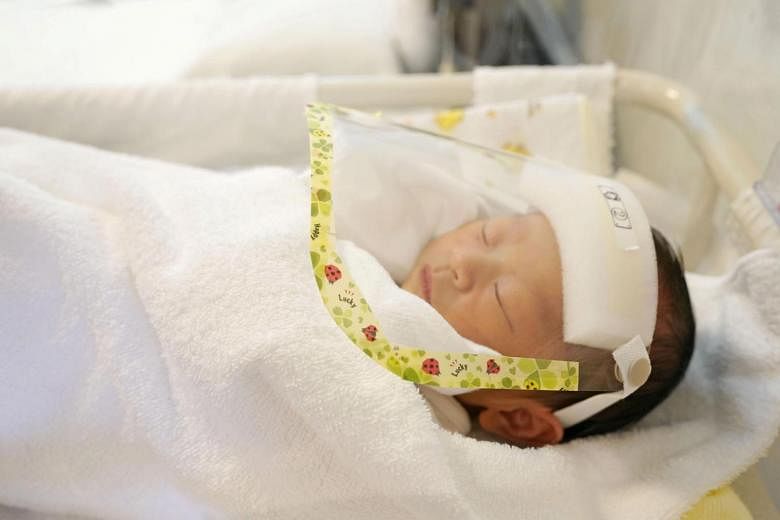TOKYO - Alarm bells are ringing over Japan's fertility crisis as it is expected to be further exacerbated by the Covid-19 pandemic.
The Health Ministry has estimated that there will likely be about 845,000 newborns this year, 20,000 fewer than last year which was the fifth straight year of decline.
This fertility rate as of last year was 1.36, well under the official target of 1.8. by fiscal 2025 which is already below the replacement rate (or the rate required to maintain the population at a constant level) of 2.1.
The government has warned that if current trends persist, there will likely be fewer than 800,000 babies born next year.
It was only as recently as 2015 when Japan registered more than a million new births, but numbers have been in freefall since.
The forecasts are drawn from "pregnancy reports", an administrative procedure in which expectant mothers inform their local municipalities of their pregnancy, typically in their first trimester.
The number of reported pregnancies nationwide fell 11.4 per cent between May and July from the same period last year.
And the total number of pregnancy filings for the first seven months of the year declined by 5.1 per cent year on year to 513,850.
"I think the spread of the coronavirus has many people worried about getting pregnant, giving births and rearing babies," Mr Tetsushi Sakamoto, minister in charge of responses to Japan's declining birth rates, told a news conference last month.
These include financial pressures arising from job uncertainty that might cause people to rethink getting married and having children.
The overall unemployment rate for September stood at a three-year high of 3.0 per cent, driven up by jobless youth of child-bearing age.
Those aged 25 to 34 have the highest jobless rate among all age groups, at 4.8 per cent.
The economic instability, as well as Covid-19 social distancing guidelines, have also led to delayed marriages, with the number between May and July dropping 36.9 per cent from the same period last year. This, in turn, will likely accelerate the crisis given that a vast majority of babies in Japan are born in wedlock.
As more people delay marriage and give birth later, Prime Minister Yoshihide Suga's government is pushing legislation to allow for fertility treatments, often costing millions of yen, to be covered by national health insurance.
He also wants to double the one-time government allowance to newlyweds to 600,000 yen (S$7,820).
Among those who got married recently were Mr Yusuke Hatakeyama, 27, a salaryman, and Ms Mizuki Akutsu, 28, a physiotherapist, from Utsunomiya in Tochigi prefecture.
They had cancelled their wedding in July. Ms Akutsu told the Asahi Shimbun: "It did not feel right going through a happy occasion when so many of my colleagues were working hard and so many people were suffering."
But they eventually decided to go ahead with the ceremony on October 3 with the blessings of her patients, as well as the help of a locally-run wedding subsidy scheme.
Dr Emi Kataoka, a sociologist from Komazawa University in Tokyo, told The Sunday Times that the expected decline in childbirths had far outpaced her expectations.
"Young people are becoming financially poorer, and this will make it even more difficult for them to get married and have many children. This trend is only accelerated by the coronavirus crisis," she said.
"There must be policies beyond child-rearing support to financially help youth, who would otherwise see no means and no benefit to getting married."












